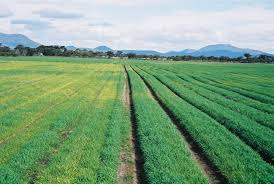In a world wrestling with natural difficulties, the requirement for feasible practices has reached out to each feature of life, including farming. Feasible cultivating, otherwise called agroecology or regenerative horticulture, is acquiring noticeable quality as an encouraging sign for the eventual fate of cultivating. This creative methodology intends to adjust the requests for food creation with the protection of average assets, biodiversity, and environmental wellbeing. Benedictt palen Jr thinks by focusing on long-haul feasibility over momentary increases, economical cultivating rehearses offer a way towards a versatile and flourishing horticultural future.
The Pillars of Sustainable Farming
Soil Health and Conservation:
sustainable cultivating revolves around sustaining and recharging soil
wellbeing. Solid soil holds water better, decreases disintegration, and works
on supplement cycling, prompting expanded crop efficiency and diminished need
for engineered inputs. For example, cover trimming, decreased culturing, and
fertilizing the soil improve the dirt's natural matter, upgrading its richness
and construction.
Biodiversity Preservation:
Unlike ordinary monoculture cultivating, maintainable horticulture underlines
biodiversity. Crop variety not just gives a cushion against nuisances and
sicknesses but also adds to the general strength of the environment.
Coordinating various harvests and even domesticated animals on a similar ranch
advances cooperative connections, lessens the requirement for substance data
sources, and upgrades flexibility despite changing environmental conditions.
Efficient Water Management:
Feasible cultivating perceives the significance of water as a valuable asset.
Executing water-productive water system strategies and using water collecting
techniques assist with alleviating water shortage. Accuracy water system
advances and legitimate harvest determination for nearby circumstances lessen
water wastage and ecological effects.
Reduced Chemical Dependency:
A key tenet of sustainable farming is the reduction of chemical inputs. Organic
farming practices that avoid synthetic pesticides and fertilizers minimize soil
and water pollution. Integrated Pest Management (IPM) strategies focus on
biological controls, natural predators, and cultural practices to manage pests
and diseases effectively.
Advantages of Sustainable Farming
Environment Flexibility: Reasonable
cultivating rehearses advance carbon sequestration in the dirt, relieving
environmental change by catching and putting away climatic carbon dioxide.
Also, broadened editing frameworks are better prepared to endure outrageous
climate occasions, strengthening farming.
Economic Viability:
While transitioning to sustainable practices might require initial investments,
the long-term benefits often outweigh the costs. Enhanced soil fertility
reduces the need for expensive synthetic inputs, lowering production costs.
Moreover, diversified farming systems can provide multiple income streams,
increasing the farm's economic stability.
Healthier Food and Ecosystems:
Sustainable farming prioritizes the health of both consumers and ecosystems.
Reduced chemical residues in food lead to healthier diets, while practices like
organic farming support biodiversity and protect pollinators, which are crucial
for global food security.
Rural Development:
Sustainable farming supports local communities by generating employment
opportunities and promoting rural development. It encourages closer connections
between farmers and consumers, fostering a sense of food security and trust.
The conclusion

No comments:
Post a Comment